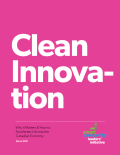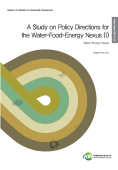The production of Renewable Natural Gas (RNG) from organic waste for use as a vehicle fuel is an emerging strategy that businesses, states, and municipalities in the United States are pursuing to make use of waste-derived methane and lower the carbon footprint of vehicle fleets.
The Production and Use of Renewable Natural Gas as a Climate Strategy in the United States explores RNG’s potential as a climate-change strategy in the U.S., including the conditions under which it can achieve large greenhouse gas (GHG) emissions reductions compared to fossil fuels used to power vehicles.
At the WTO’s Eleventh Ministerial Conference in December 2017, ministers adopted a Decision on Fisheries Subsidies directing negotiators to continue talks with a view to adopting an agreement by 2019, the year of the next ministerial conference. The ministerial decision also specifically re-commits WTO members to implementing their existing notification obligations in order to strengthen transparency of the subsidies provided to fishing. Reaching a comprehensive and effective outcome will require solutions that respond to the many technical and legal questions the negotiations have brought up.
The decline of global fish stocks has implications for both the food security and the livelihoods of many communities around the world. A World Trade Organization (WTO) agreement on the prohibition of harmful fisheries subsidies, currently under negotiation, could make an important contribution to the sustainability of global fisheries.
Overfishing, Overfished Stocks, and the Current WTO Negotiations on Fisheries Subsidies aims to clarify key fisheries management concepts relevant to the ongoing WTO negotiations on fisheries subsidies, in order to support progress towards new rules.


